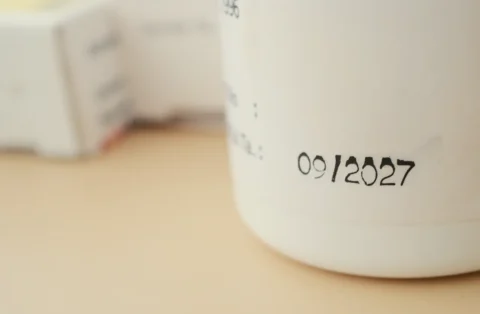As QuickMD continues to evolve, we encounter new patient challenges beyond traditional prescription opioid addiction. One such challenge is the emergence of a drug called tianeptine, currently unregulated in the US and marketed as a recreational dietary supplement or mood enhancer. Sold under various brand names like Pegasus, Tianaa, Zaza, and Neptune’s Fix, it is gradually facing heavier regulation as cases of dependence and addiction surface across the nation.
Examining Tianeptine’s Complexities
Local news coined the term “gas station heroin” to describe the wide availability of this potentially dangerous pill, which interacts with the brain much like opioids do. Tianeptine acts on opioid receptors, triggering the release of dopamine and enhancing serotonin uptake, leading to feelings of euphoria similar to that of prescription opioids. With a half-life of around 4 hours, tianeptine can induce a crash similar to most opioids or mood enhancers, especially when used in excess. With dopamine reserves depleted in the body, withdrawal symptoms can be intense.
Is tianeptine legal in the US?
While tianeptine is classified as an antidepressant in more than 60 countries worldwide, it remains unclassified by the FDA within the United States, prompting states to recognize its dangers. As of the start of 2024, 9 states have banned tianeptine, including Alabama, Florida, Georgia, Indiana, Kentucky, Michigan, Mississippi, Ohio, and Tennessee.
The Origin Story
Crafted in the 1960s by the French Society of Medical Research, tianeptine emerged as a prescription medication under various brand names like Stablon, Coaxil, and Tatinol. Marketed abroad as a drug to treat depression, it’s also being explored as a potential treatment for persistent depressive disorder, bipolar disorder, and adjustment disorders. Despite its classification as an antidepressant, it has a potent effect on the brain’s opioid receptors.
Misuse, Addiction, and Withdrawal
Navigating the complexities of tianeptine highlights the urgent need for understanding and support amid its evolving role in mental health. In spite of its intended use as an antidepressant, tianeptine often becomes entangled in a cycle of misuse, leading individuals into its seductive embrace and fostering dependency and addiction.
Initially thought to function as an atypical antidepressant by targeting serotonin transporters, tianeptine has revealed its pharmacological profile through further research. We now know it serves as a full agonist at mu-opioid receptors. When these receptors are activated, they can produce effects similar to those caused by opioids, including:
- Pain relief
- Feelings of pleasure
- A sense of relaxation
- Euphoria
Even so, the FDA has not sanctioned tianeptine for any medical application.
Tianeptine carries a notable risk for misuse, especially when taken in high doses. The Centers for Disease Control and Prevention (CDC) expresses deep concern about tianeptine emerging as a “public health risk,” noting a concerning uptick in calls to poison control centers related to its misuse. Users sometimes ingest dangerously high doses, reportedly reaching up to 7500 mg—far surpassing the typical 25 mg to 50 mg prescribed for depression. These elevated levels can blur the line between tianeptine and opioids, raising alarms about potential harm.
According to official statements from the Drug Enforcement Agency (DEA), individuals experiencing withdrawal from tianeptine commonly exhibit the following symptoms, which mirror the effects observed with the use of other opioid drugs:
- Agitation
- Nausea
- Vomiting
- Rapid heart beat (tachycardia)
- High blood pressure (hypertension)
- Diarrhea
- Tremors
- Excessive sweating
Finding Treatment
Through insights from the Reddit community, we have gained a deeper understanding of the impact of tianeptine in many parts of the US. QuickMD approaches the treatment of tianeptine addiction with the same concerns as opioid addiction, with treatment using MOUD (medications for opioid use disorder) with buprenorphine (e.g., Suboxone)
Tianeptine dependence, withdrawal, and addiction can be treated with buprenorphine in a similar manner to treatment of opioid use disorder (OUD). Informed about tianeptine, our healthcare providers are proficient in employing modern treatments to confront its misuse and alleviate dependency.
Navigating the Way Forward
Managing the intricacies of tianeptine’s presence calls for a compassionate and informed approach. It starts with educating healthcare providers and patients alike about the complex risks associated with this substance. For some struggling with prescription drug addiction, using an unregulated and federally legal alternative to opioids can seem like a tempting solution to alleviate pain and anxiety. Recognizing this perspective is key to providing support and guidance for those in need.
At QuickMD we fully recognize the importance of providing services for those struggling with tianeptine use. Please don’t hesitate to reach out for help and support through our Customer Care Team to get started—or book an appointment now to start the discussion about treatment for tianeptine addiction.




